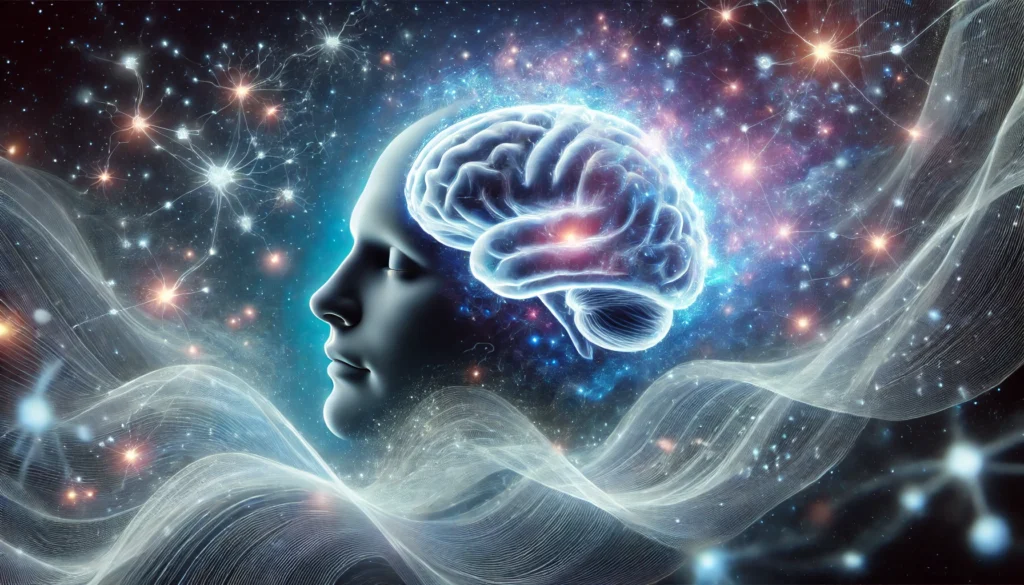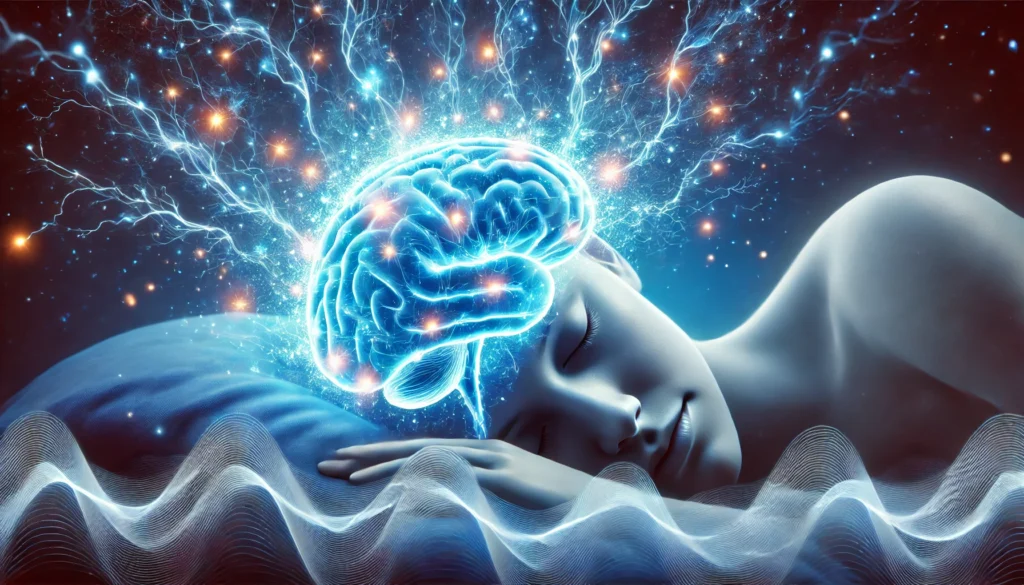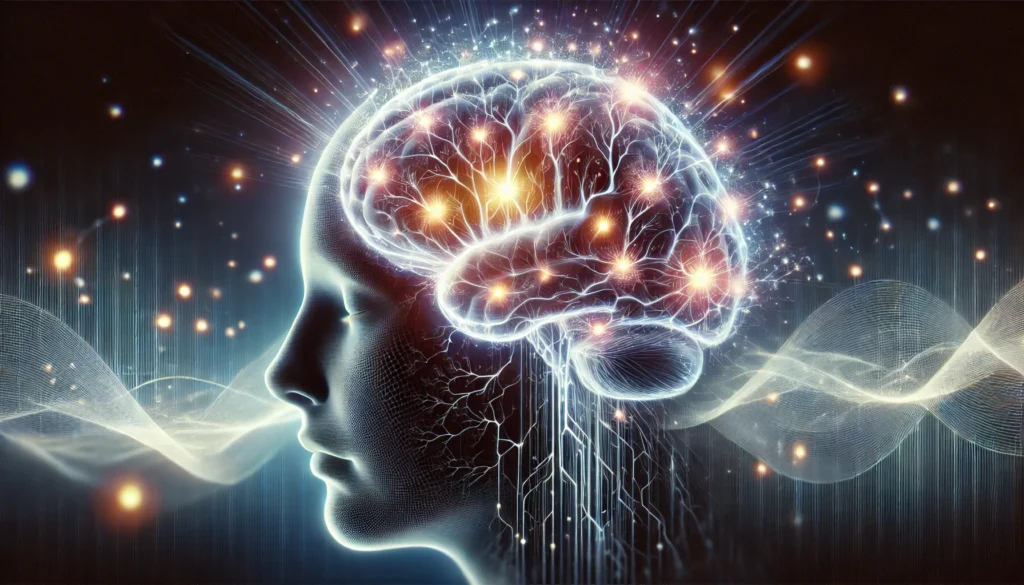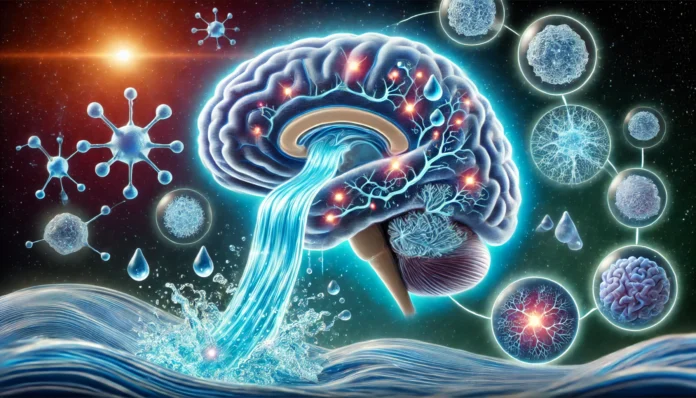Understanding the Mystery of Sleep: Why Do We Sleep?
Sleep is a universal and essential biological function, yet its exact purpose remains one of the most intriguing questions in neuroscience. Why do we sleep? The answer lies in the complex interplay of brain activity, memory consolidation, metabolic regulation, and overall cognitive restoration. While you are asleep, your brain does not simply shut down; rather, it engages in highly dynamic processes that are critical for mental and physical health. Sleep cycles regulate brain function, remove metabolic waste, and optimize learning and emotional processing.
You may also like : Best Things for Brain Health: Expert-Backed Strategies to Keep Your Mind Sharp
The importance of sleep can be understood scientifically through its restorative functions. During sleep, the brain undergoes neurochemical changes that facilitate synaptic plasticity, allowing neurons to strengthen or weaken connections based on learning and experiences from the day. This adaptive capability underscores the critical role of sleep in memory formation and problem-solving abilities. Additionally, the brain’s glymphatic system, a recently discovered waste-clearing mechanism, becomes highly active during deep sleep stages, helping remove toxins that accumulate during waking hours. These findings help explain why sleep feels so good and why prolonged sleep deprivation can have severe cognitive consequences.
The Stages of Sleep: A Deep Dive into Sleep Cycles
Understanding sleep requires an exploration of its structure. The human sleep cycle is composed of distinct stages that progress through predictable patterns throughout the night. These stages of sleep are broadly categorized into non-rapid eye movement (NREM) sleep and rapid eye movement (REM) sleep. Each of these phases plays a vital role in brain activity while sleeping.
- NREM Stage 1 (Light Sleep): The transition between wakefulness and sleep. In this stage, brain waves begin to slow, and muscles relax, though individuals can still be easily awakened.
- NREM Stage 2: Brain activity becomes more synchronized, and the body prepares for deeper sleep by reducing heart rate and body temperature. Sleep spindles—sudden bursts of brain activity—help protect sleep from external disturbances.
- NREM Stage 3 (Deep Sleep Sleep): This is the most restorative phase of sleep, characterized by slow delta waves. Deep sleep is essential for physical recovery, immune function, and brain detoxification. What part of sleep is the deepest? NREM Stage 3 represents this crucial stage.
- REM Sleep (Dreaming Stage): During REM sleep, brain activity is highly active, resembling wakefulness. It is the phase when most dreaming occurs, and the brain consolidates memories, regulates emotions, and processes learned information.
Each sleep cycle lasts about 90 minutes and repeats multiple times throughout the night. The proportions of each stage shift as the night progresses, with deep sleep dominating early cycles and REM sleep becoming more prolonged later in the night. Understanding these sleep cycle stages highlights why maintaining a consistent sleep schedule is essential for optimal brain health.
Brain Activity While Sleeping: A Neurological Perspective
Sleep is often thought of as a period of rest, but the brain remains remarkably active throughout the night. During REM sleep brain activity increases significantly, mirroring patterns seen during wakefulness. This heightened activity is associated with dreaming, problem-solving, and emotional regulation. What does your brain do while you sleep? It engages in complex processes that optimize mental function and prepare the individual for the challenges of the next day.
Neuroscientific research has demonstrated that specific regions of the brain play distinct roles during sleep. The hippocampus, responsible for memory processing, reactivates recent experiences, transferring them to long-term storage in the cortex. The amygdala, which processes emotions, becomes particularly active during REM sleep, helping to regulate emotional responses. The prefrontal cortex, crucial for decision-making and impulse control, experiences a temporary reduction in activity, which may explain the surreal nature of dreams.
These insights answer the question: are you unconscious when you sleep? The answer is nuanced. While sleep involves a decreased awareness of the external environment, the brain remains highly engaged in critical physiological and cognitive processes. This complexity differentiates sleep from unconsciousness caused by medical conditions or anesthesia.

The REM Cycle and Its Role in Cognitive Function
One of the most critical components of sleep is the REM cycle. Why is REM sleep important? This stage is essential for cognitive function, creativity, and emotional regulation. Research suggests that REM sleep enhances problem-solving abilities and promotes neural plasticity, allowing the brain to adapt to new information.
What point of sleep do you dream? Dreams primarily occur during REM sleep, and their function remains a topic of debate among scientists. Some theories suggest that dreaming helps process emotions, consolidate memories, or even simulate real-world challenges to improve problem-solving skills. Moreover, how long does it take to get into REM sleep? Typically, the first REM phase occurs about 90 minutes after falling asleep, with subsequent REM cycles increasing in duration throughout the night.
REM vs deep sleep serves distinct purposes, with deep sleep focusing on physical restoration and REM sleep prioritizing cognitive and emotional processing. Both are vital for overall health, underscoring the need for an adequate amount of uninterrupted sleep.
Sleep and Healing: The Connection Between Sleep and Brain Health
Sleep plays a vital role in healing and maintaining overall well-being. What happens to your brain when you sleep? Among its many functions, sleep aids in tissue repair, immune system strengthening, and metabolic balance. Sleep and healing go hand in hand, as the body releases growth hormones during deep sleep, facilitating cellular regeneration and recovery from daily wear and tear.
Beyond physical repair, sleep is essential for mental health. Studies have shown that chronic sleep deprivation is linked to cognitive decline, mood disorders, and an increased risk of neurodegenerative conditions such as Alzheimer’s disease. This occurs because, during deep sleep, the brain clears amyloid-beta plaques, a toxic protein associated with Alzheimer’s. Thus, what does sleep do for the brain? It supports both short-term cognitive function and long-term neurological health.
During sleep, your brain rests—but this rest is an active process. The concept of rest in sleep is not about shutting down but rather about engaging in essential maintenance processes that promote learning, memory retention, and emotional stability.

Frequently Asked Questions: Understanding Sleep and Brain Function
1. Are you unconscious when you sleep, or is your brain still active?
While it may seem like sleep is a state of unconsciousness, the brain remains highly active throughout various sleep cycles. Different stages of sleep dictate varying levels of awareness and responsiveness. For instance, in deep sleep sleep, consciousness is significantly reduced, making it difficult to wake someone. However, during REM sleep brain activity spikes, and individuals can experience vivid dreams. What does sleep do for the brain during these phases? It plays a crucial role in processing emotions, consolidating memories, and enhancing problem-solving skills.
2. What happens to your brain when you sleep, and why is it essential?
During sleep, your brain undergoes numerous essential functions that contribute to cognitive restoration and overall well-being. The glymphatic system becomes highly active, clearing out neurotoxic waste products that accumulate during the day. Additionally, during REM sleep brain activity mirrors that of wakefulness, helping to process complex emotions and reinforce learning. What part of sleep is the deepest in terms of restoration? Deep sleep sleep is crucial for bodily repair and immune function, making it one of the most important phases for overall health. Without adequate sleep, cognitive performance, emotional stability, and physical health suffer significantly.
3. How long does it take to get into REM sleep, and what factors influence this timing?
It typically takes about 90 minutes to reach the first REM cycle, though individual variations exist based on factors such as age, stress levels, and overall sleep quality. Sleep deprivation or disrupted sleep cycles can delay the onset of REM sleep, impacting memory consolidation and emotional processing. What does your brain do while you sleep in this stage? It integrates new experiences, sorts through emotions, and helps the body regulate stress. External factors such as caffeine consumption, late-night screen exposure, and irregular sleep schedules can delay REM sleep onset, making it more difficult to experience restorative benefits.
4. What stage of sleep is most important for learning and memory retention?
While all sleep cycle stages contribute to cognitive function, REM sleep and deep sleep are particularly crucial for memory retention and learning. During REM sleep brain activity strengthens neural pathways related to newly acquired information. Conversely, deep sleep is essential for consolidating declarative memory—facts and knowledge acquired during the day. Why do we need sleep scientifically? Studies show that sleep enhances neuroplasticity, allowing the brain to adapt and store information more effectively. Both REM and deep sleep sleep work together to ensure that knowledge and experiences are properly processed and retained.
5. Why does sleep feel so good, and what role do brain chemicals play?
Sleep triggers the release of neurotransmitters such as serotonin, dopamine, and melatonin, which contribute to feelings of relaxation and well-being. During sleep and healing phases, growth hormones are released to aid in cellular repair and muscle recovery. Additionally, the body’s temperature drops slightly, reducing metabolic demands and promoting a soothing effect. During sleep your brain rests in a way that allows emotional stress to be processed, contributing to the feeling of rejuvenation upon waking. This intricate neurochemical balance is why waking up after a deep, uninterrupted sleep feels so satisfying and restorative.
6. What point of sleep do you dream, and why do dreams feel so vivid?
Dreaming primarily occurs during the REM cycle when brain activity closely resembles wakefulness. This heightened neural activity contributes to the intensity and complexity of dreams. Are you dead when you sleep? While sleep reduces sensory input and external awareness, the brain remains highly active, constructing detailed and often surreal dream experiences. Some scientists propose that dreaming serves psychological functions, such as problem-solving, processing fears, and rehearsing real-world scenarios. The vividness of dreams is largely due to increased blood flow and activation of emotional and memory-related brain regions during REM sleep.
7. What is sleep’s role in emotional regulation and mental health?
Sleep acts as an emotional stabilizer, with different sleep cycles playing unique roles in mood regulation. What does sleep do for the brain in this regard? It helps process stressful experiences and emotional memories, reducing their intensity over time. Chronic sleep deprivation has been linked to increased anxiety, depression, and mood disorders due to dysregulation of neurotransmitters. The REM cycle is especially important for emotional resilience, as it allows the brain to recalibrate emotional responses. A lack of proper sleep can impair judgment, exacerbate negative emotions, and reduce stress tolerance, highlighting the importance of consistent, high-quality sleep.
8. Why do we need sleep scientifically, and what happens if we don’t get enough?
From a scientific perspective, sleep is essential for maintaining homeostasis in nearly every bodily system. Functions of sleep include restoring immune function, regulating hormones, and clearing toxic metabolic byproducts from the brain. Sleep deprivation can lead to cognitive decline, impaired motor function, and an increased risk of neurodegenerative diseases such as Alzheimer’s. What stage of sleep is most important for physical repair? Deep sleep plays the most significant role in muscle recovery and immune response, while REM sleep supports cognitive function. Chronic sleep loss affects decision-making abilities, weakens the immune system, and contributes to metabolic disorders like obesity and diabetes.
9. What is the difference between REM vs deep sleep, and how do they impact overall health?
REM sleep and deep sleep sleep serve distinct but complementary purposes. REM sleep is critical for cognitive processes such as learning, creativity, and emotional regulation. During this stage, brain activity while sleeping closely resembles waking states, allowing for complex neural processing. On the other hand, deep sleep is essential for physical restoration, immune function, and energy conservation. What happens to your brain when you sleep without adequate deep or REM sleep? A lack of either can result in memory deficits, increased stress levels, and impaired problem-solving abilities. Both phases are necessary for optimal mental and physical performance, emphasizing the importance of maintaining a balanced sleep schedule.
10. How can improving sleep hygiene enhance brain function and longevity?
Good sleep hygiene practices, such as maintaining a consistent sleep schedule, reducing screen time before bed, and optimizing bedroom conditions, contribute to better sleep quality. Why do we sleep more effectively under these conditions? The body follows a circadian rhythm that thrives on regularity, helping regulate melatonin production and brain activity while sleeping. Optimizing sleep and healing processes can improve cognitive function, reduce inflammation, and promote neuroprotection against age-related decline. What does sleep do for the brain in the long term? It enhances synaptic pruning, prevents mental fatigue, and fosters better decision-making skills. Prioritizing sleep quality is a simple yet powerful strategy for preserving brain health and overall longevity.

Conclusion: The Indispensable Role of Sleep in Cognitive Restoration
Understanding the intricacies of sleep provides valuable insights into why it is a fundamental component of health. Sleep is far more than a passive state; it is an active and dynamic process crucial for brain function, emotional regulation, and physical recovery. Sleep cycles, particularly the REM cycle and deep sleep, orchestrate a delicate balance of restoration and processing, ensuring that individuals wake up refreshed and prepared for the challenges of the day.
Prioritizing sleep hygiene by maintaining a consistent sleep schedule, optimizing sleep environments, and managing stress levels can significantly enhance cognitive performance and long-term health. As research continues to unveil the profound impact of sleep on brain function, it becomes increasingly clear that sleep is one of the most powerful tools for overall well-being. What stage of sleep is most important? The answer lies in the intricate balance of all sleep stages working harmoniously to support the brain’s numerous functions.
Thus, sleep should never be viewed as a passive luxury but rather as an active investment in cognitive vitality and longevity. By understanding the science behind sleep, individuals can make informed choices to improve their mental clarity, emotional resilience, and overall health.
sleep deprivation effects, cognitive benefits of sleep, sleep and brain function, neural activity during sleep, deep sleep benefits, REM sleep importance, circadian rhythm regulation, sleep hygiene tips, sleep and mental health, sleep cycle optimization, memory consolidation in sleep, sleep’s impact on aging, brain detoxification during sleep, sleep and stress reduction, neurological processes in sleep, sleep and immune function, sleep disorders and brain health, sleep’s role in learning, improving sleep quality, sleep and emotional processing
Further Reading:
What happens in the brain when we sleep?
What Happens to Your Body When You Sleep?
The Science Behind Dreams: What Happens When We Sleep
Disclaimer
The information contained in this article is provided for general informational purposes only and is not intended to serve as medical, legal, or professional advice. While Health11News strives to present accurate, up-to-date, and reliable content, no warranty or guarantee, expressed or implied, is made regarding the completeness, accuracy, or adequacy of the information provided. Readers are strongly advised to seek the guidance of a qualified healthcare provider or other relevant professionals before acting on any information contained in this article. Health11News, its authors, editors, and contributors expressly disclaim any liability for any damages, losses, or consequences arising directly or indirectly from the use, interpretation, or reliance on any information presented herein. The views and opinions expressed in this article are those of the author(s) and do not necessarily reflect the official policies or positions of Health11News.


